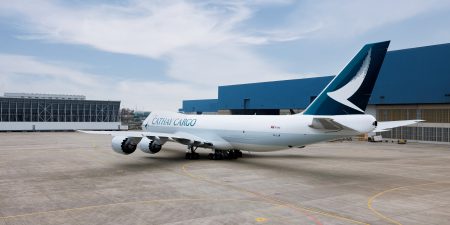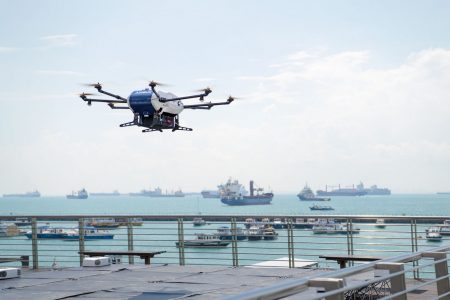The growth in e-commerce sales is not only set to continue, but is expected to accelerate from 19 per cent per annum to 21 per cent from this year. While bulk handling of these shipments can be readily absorbed by existing integrators, air cargo and the in-house fleets of the e-commerce giants themselves, there has always been the issue of how to make the final-mile deliveries needed to fulfil the customer promise of express delivery – particularly in remote or traffic-congested urban areas.
To date, many suppliers have been experimenting with drones, delivery robots and the like, which have mainly been designed by pioneering and enterprising start-ups. But now the two big aircraft manufacturers Boeing and Airbus have gotten involved, which shows that the autonomous cargo vehicle sector is one to be taken very seriously.
In 2018, Boeing revealed its prototype electronic CAV (cargo air vehicle), a battery-powered quadcopter with eight propellors. It measures 4.5 metres long and 5.5 metres wide, and weighs in at 339kg, with a long-term aim for it to carry a payload of 266kg. It took three months for the Boeing drone to get from the drawing board to full testing.
Boeing said it planned to use its first model to ‘test and evolve Boeing’s autonomy technology for future aerospace vehicles.’ In January, the manufacturer followed through on that plan by testing its first autonomous passenger air vehicle.


